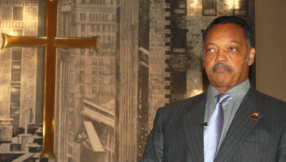Saturday saw members of the General Synod Church of England engage in the latest round of the 'Living in Love and Faith' (LLF) project, exploring issues around identity, sexuality, relationships and marriage.
The five optional sessions, each running three times over the afternoon and with participants choosing which to attend, consisted partly of presentations and partly of opportunities for Synod members to continue to feed in their views.
Three of these sessions were seminars, led by members of the interdisciplinary LLF working groups covering biblical studies, theology, history and social and biological sciences. The seminar entitled 'Where are we?' explored social cultural shifts, as well as some input from a scientific perspective; 'Who are we?' covered what it means to be created, fallen and redeemed; and 'How do we hear God?' looked at how we understand scripture.
Members of the working groups were drawn from a range of theological perspectives, and on a number of occasions they stressed that they did not all agree on the matters under discussion.
The opportunities for participation in the seminars were at times extremely rushed, with Synod members having a very short amount of time to scribble down thoughts on pieces of paper which were then gathered up, and which we were assured would form part of the input into the LLF process. (Throughout the project, however, members of Synod have been reminded of the opportunity to write in with more considered observations.)
As might be expected, given the composition of both the working groups and the Synod itself, the sessions had both helpful and less helpful elements. The setting of the discussion around sexuality in the context of the Christian understanding of creation and fall was welcome, as was the recognition that different perspectives can emerge from radically different (and incompatible) ways of understanding the nature of scripture.
One member of Synod commented that there had been far more interaction with doctrine and scripture, and less reliance on anecdote and story, than he feared, or than had often been the case in the past.
It was, however, a matter of concern that the working group looking at the biological and social sciences appeared not to have questioned the origin and concept of 'gender' as a meaningful description of a human characteristic. It was also noted, including by some LGBT members of Synod, that there was a good deal of discussion about sex, but relatively little consideration of love.
Alongside the seminars, a session entitled 'Encounters on the way' began with the Emmaus story, segueing into a series of personal stories on the themes of LLF which, according to some of those participating, bore little apparent relation to the Emmaus narrative, with one member of Synod even describing the discussion as a 'reprehensible abuse of scripture'.
The final session was a workshop on pastoral principles. This presented two hypothetical case studies—one centred on a conservative evangelical church and one on a LGBT-affirming church'—and asked participants to discuss how the 'pervading evils' of prejudice, silence, ignorance, fear, hypocrisy and power might be addressed in the situations described. One Synod member commented that, amid the discussion, there was no actual pastoral guidance offered!
The LLF project is intended to come to fruition next year, and among its main 'products' there is to be a book, along with various other resources. It is clear now that this will encompass a range of views, and anyone who might have been hoping that the outcome of LLF would be a change in the Church's doctrine will be sadly disappointed. The extent to which it offers a positive contribution can only be assessed when the document appears.
Prudence Dailey has been a lay member of the General Synod of the Church of England since 2000.













